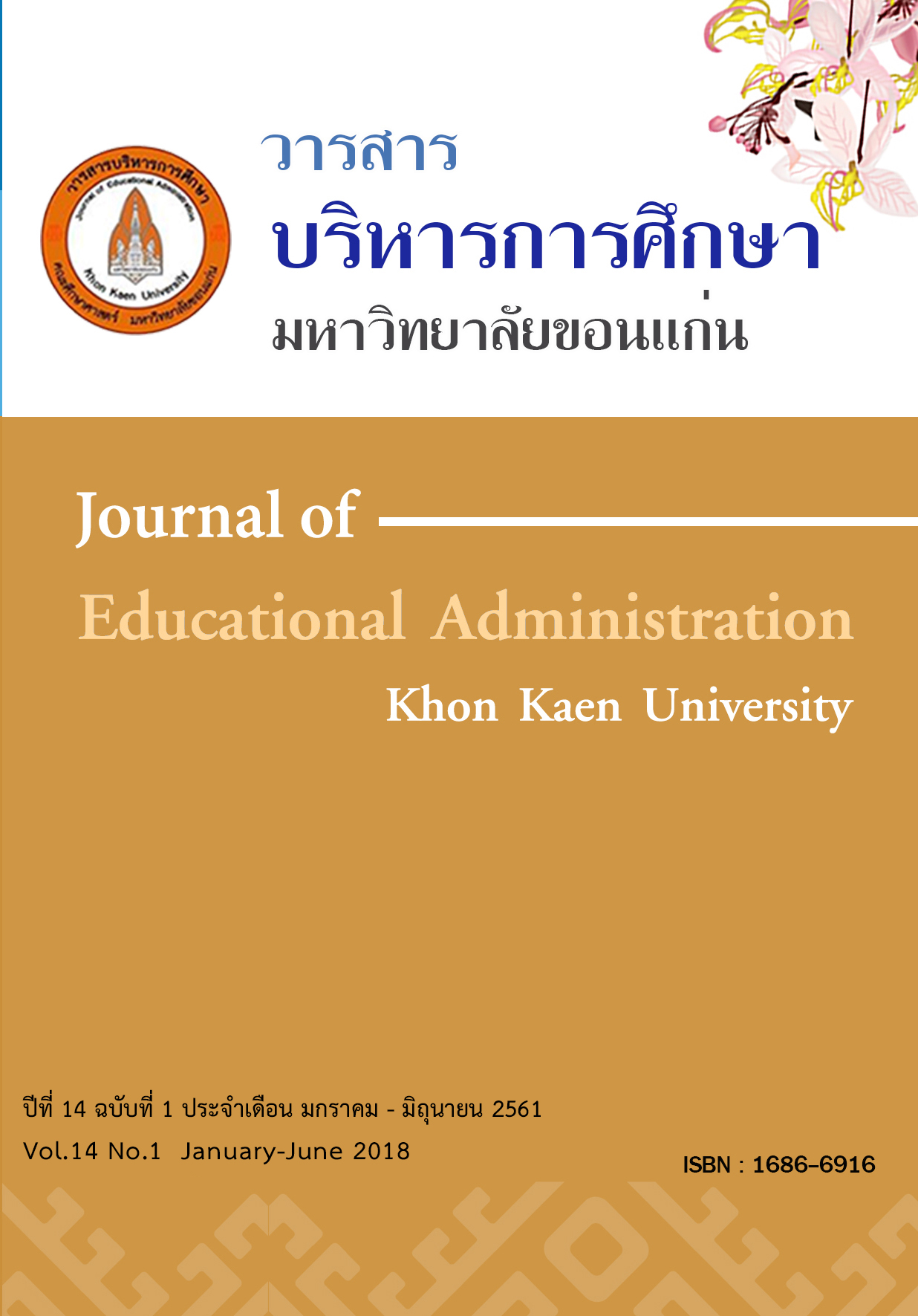TEACHER PROFESSIONAL DEVELOPMENT FOR ENHANCING THE QUALITY OF STUDENTS IN GOOD GOVERNANCE INTO THE ASEAN COMMUNITY
Main Article Content
Abstract
This study aimed to explore teacher professional development process associated with students’ quality improvement in good governance schools into ASEAN Community utilizing an action research design. A total of 155 teachers and administrators were the respondents. Instruments including field note record, interview protocol, observation checklist and reflective report. Content analysis was used and results were presented in descriptive essay format.
Results of teacher professional development process cover: Step 1: Plan to create awareness and understanding about school context and performance among staff. Set up ASEAN community policy and learning, management plan, and good governance implementation between Khon Kaen Provincial Administrative Organization, Khon Kaen University, and schools. Step 2: A workshop on integration active learning and innovation skills in teaching Mathematics, Sciences and English subjects is conducted to the failure schools. Set up supervision and monitoring system. Administrators implement management of supporting factors and a transparent manner of participatory management. Step 3: External experts’ classroom visit to encourage teachers work continuous toward their success. Step 4: Organized meetings to summary and report the results of teaching performance reflection and periodic reports to track the school progress and solve the common problems.
Results of teacher professional development indicated: (1) Main focus of professional development is on promoting ASEAN skills in learning. Administrators and teachers identify the learners’ problems and needs to meet the school policies through emphasizing critical thinking, reasoning, communicative, and collaborative skills. (2) Learning skills are developed through classroom activities. Teachers share teaching pedagogy with their colleagues. The English, Mathematics, and Sciences teachers use the innovation like communicative approach, 4 skills, and authentic materials; problem solving process, and 5-step collective learning. Teachers apply new skills by integrating the 21st century skills through collaboration and problem solving implementation. And (3) Teachers’ satisfaction towards the participation process showed that a total of 65.31% of teachers can write learning plans and manage classroom well. External experts’ classroom visits help teachers’ continuous improvement in their learning plans. A learning community is formed between schools, teachers, students, and parents. Teachers share knowledge to develop leadership skills. Administrators’ satisfactions on good governance management include transparency, fairness, and participative problem solving.


